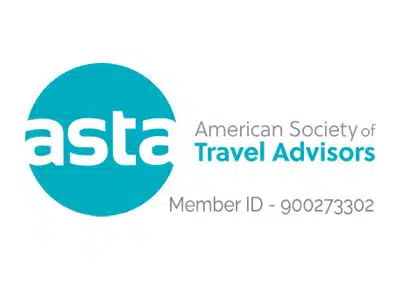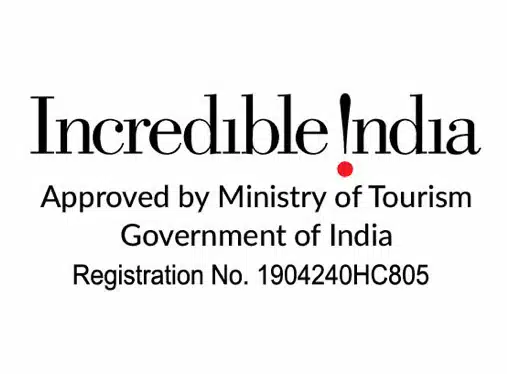How do we get visa. How much time it takes.
For all the 4 East African countries, Kenya, Tanzania, Uganda and Rwanda, a single entry visa costs USD 32 for Kenya, and USD 50 for remaining 3 countries. The visa can be valid upto 90 days. The visas can be applied online or applied on arrival. Exact validity is decided on arrival depending on your itinerary. During online application, there is some service charge and credit card fees, and the total cost comes to about USD 52.53. In visa on arrival, you can pay cash of USD 50, there is no other processing charge.
Multiple entry visa for these countries costs USD 100 each, however if you go from Kenya to Tanzania and come back to Kenya, you can pay for a single entry visa. It takes 5 to 15 working days for e-visa to be processed, and they ask very simple documentation, which is your passport copy, air tickets, hotel bookings and itineraries to apply for e-visa along with a visa application form. In case you have made payment and your visa does not come on time, carry the payment proof to get visa on arrival, you will not have to pay again.
Also all these countries have visa on arrival for most nations in the world including US and all West European countries. Do check the exclusion list to see if your country is barred from Visa on arrival. Visa on arrival has the same fees and it is a fast process, do carry your air tickets, hotel vouchers and original passport as documentation.All the immigrations will do biometrics on arrival and can ask for your yellow fever card during immigration.
There is also an East Africa tourist visa for USD 100 which gives multiple entries to Kenya, Uganda and Rwanda. Please notice that Tanzania is not included in this list. Following are the respective immigration websites to apply for e-visa.
Kenya: https://www.etakenya.go.ke/en
Tanzania: https://visa.immigration.go.tz/
Uganda – https://visas.immigration.go.ug/
Rwanda: https://www.migration.gov.rw/
Beware of spurious visa websites, do not apply/pay for visa from any other site than the above 4 official sites. We can do the visa application on your behalf for a total cost of USD 65, which includes visa fees and our admin fees. Your passport needs 6 months of validity (as on date of intended arrival), and there must be atleast 2 blank pages to be eligible for visa for each of these countries.
Are there any safety issues I should know
All the 4 East African countries of Kenya, Tanzania, Uganda and Rwanda are very safe for tourists, as safe as any western country as long as you follow the basic precautions. The basic precautions are
- Whether in a town, beach or national park, you are perfectly safe when you are inside your hotel or resort which has been curated by us. Many of these hotels also have electronic safes for storing your valuables, though not all.
- Once you are in a national park, whether on safari or in your hotel, you are perfectly safe as national parks are restricted and protected areas. There is absolutely nothing to worry about.
- When you are in a town, do not go anywhere without the company of your guide or driver, and do follow their guidelines at all times. These could be to roll up vehicle windows when travelling within cities, or not keeping wallet or phone hanging in an open pocket when walking. There can be small incidences of pick-pockets if you are not careful, but there are no major crimes reported with any tourist in recent times.
- When in public beaches, maintain the dressing etiquettes as prescribed by the respective countries and also shared by us before your trip.
- There is only a small pocket in North-East Kenya adjoining Somalia border which has some civil unrest, but that area is far from any tourism circuit or any wildlife park or beach, so that is nothing to worry about. Otherwise there are no reported cases of civil unrest or organised crime in any of these 4 countries.
How will be the weather
The weather in all these 4 countries follows a similar pattern. During June to October which is the peak tourism season, the temperatures in most wildlife parks and cities range between 18 Degree Celsius to 25 Degree Celsius for most days, and you will not need AC in any hotels (even the most luxurious hotels do not have AC, except those in the cities for pollution reason). Even during rest of the year, temperatures will barely exceed 28 Degree Celsius. The morning safaris can be a bit chilly, and we recommend you to carry some cold and wind protection gear.
The beaches follow a more tropical weather pattern and during December to March Zanzibar and Mombasa can be a bit hot and humid but nothing unmanageable.
When should I visit
The wildlife in these countries is resident and can be seen all 12 months of the year. While there is a “summer” and a “winter” season but the temperatures do not fluctuate that much between the season, and the average daytime temperature at most places varies between 18 to 28 degree Celsius throughout the year, which is very comfortable. However migration (or rather river crossings) season is from July to October, so if you are focussed on seeing the great migration, then your time frame is limited within these months. However there is a lot more (wildlife and otherwise) to see in these countries apart from the great migration, so feel free to plan your trip any time of the year. Even during the rainy months of April and May, safaris happen and the parks are lush green and wildlife is abundant, it is quite a different experience to travel that time.
The coastal areas are tropical, with particularly high humidity in April and May, but tempered by sea winds. The beaches can be visited any time of the year.
The treks however are suggested during the dry season only as during the wet months the tracks can get difficult to navigate. The best time for the Kilimanjaro trek is June to March.

Shot during the green season

This is shot during the rainy/green season of April
What are vaccinations needed. Is there any real disease risk.
- Yellow fever vaccination is mandatory by the govt. of Kenya, Tanzania, Uganda and Rwanda. You can take the vaccination in your home country and get the certificate on a WHO prescribed yellow card, which is a necessary document for travel to these countries. Also some countries like US and India recommend Oral Polio vaccination for their citizens to travel to these countries, though it is not mandatory from these 4 East African countries.
- Practically the chances of contracting any such disease is very minimal and the last reported case of yellow fever happened many years ago, and there is practically no risk of any contagious disease when you travel to these countries.
- If you take a tented accommodation, during night it is suggested to use mosquito net to prevent from mosquitos and bugs, though most such wildlife stays do not have mosquitoes practically. However there can be occasional bugs and bug-bites but those are not dangerous by any means.
- Though Malaria is not prevalent, but as a precaution, we recommend speaking to your doctor about taking preventative medication (prophylaxis), combined with regular use of insect repellent spray/cream. Take along antimalarial medication with you, and dress appropriately to avoid mosquito bites. This is not mandatory by law but for your added precaution.
- Tsetse flies are found in sub-Saharan Africa. Travelers spending a lot of time outdoors or visiting game parks in these areas can be bitten by tsetse flies and get infected. There is no vaccine or medicine that prevents African trypanosomiasis or sleeping sickness. Travelers can protect themselves by preventing tsetse fly bites. Cover exposed skin by wearing long-sleeved shirts, long pants, and hats. Clothing fabric should be at least medium weight because the tsetse fly can bite through thin fabric. Wear neutral-colored clothing. The tsetse fly is attracted to bright colors, very dark colors, metallic fabric, particularly the colors blue and black. We also recommend use of insect repellent as it can prevent the as well as other diseases spread by bug bites.
Is there medical support available for emergencies
When you are in a city or at a prominent beach destination, there are hospitals nearby which can cater to most emergencies. In the vicinity of most wildlife parks, primary health care centres are available for first level emergency care. Also all the wildlife resorts we recommend usually have a first-aid kit for minor contingencies. We however recommend the Flying Doctors evacuation insurance to everyone. For a small insurance premium, you will be transferred from the national park to the nearest major city in a well-equipped air ambulance with a doctor, and within 2 hours or less you should reach a proper hospital in case of any major contingency. We also suggest you to carry your prescription medicines to last the trip. We also suggest you to purchase a general travel insurance to cover your emergency hospitalisation costs. We offer these insurances as add-on on some of our tours. Do enquire with us about the insurance options before booking.

amref flying doctors insurance at work

flying doctors insurance at work
What should I pack
- Pack some light woollens or wind jackets and hats for morning safaris, which can get cold and windy.
- Carry your usual tropical clothing for rest of the times, like light t-shirts, pants etc and earthy colours are recommended, though not mandatory, during safaris.
- Unless it is a trekking trip, you do not need any special shoes or footwear and carry your usual ones. You will be barely walking on a safari trip.
- Even during the dry season, it can rain anytime, so carry a small umbrella or rain poncho.
- African Sun can be a bit harsh on the skin so you may like to carry some sunscreen lotion and moisturising cream. Sunglasses are also recommended.
- Carry your prescription medicines to last you for the trip. If you are allergic to dust you may like to carry some dust allergy medicines, as it can get dusty occasionally (not always). You can also carry mosquito repellant creams etc, though it is not a necessity.
- Do carry an Africa electricity adapter or a global travel adapter for your electrical gadgets to work inn Africa.
- Your personal entertainment gadgets and reading materials as per your preferences.
- Camera to capture the wonderful wildlife of Africa, though mobile camera can also do the basic work. Binoculars are optional, as wildlife will be usually close. If you are on a photography tour or photography is a major activity on your trip, do consult us separately for the camera gear requirements.
- Sufficient cash (USD works) and credit cards to cover your personal expenses.
- Your passports, vaccination cards, air tickets, hotel booking vouchers and the required visas.
- All hotels will provide toiletries and towels etc, so you need not carry those.
How should I dress
The coastal areas are predominantly Muslim. Although there are no strict dress codes, you should dress conservatively away from the tourist resorts and hotels, especially in Mombasa town, during the holy month of Ramadan or if you intend to visit religious areas. Otherwise there is no dress code as such, and you can wear what is comfortable for you. Usually in safaris we recommend to wear earthy colors to blend with the environment, and not to wear very bright colors, however that is just a suggestion and not a rule. A hat and a wind-proof jacket always helps as also mentioned in the packing suggestions above.
Is the water there potable, Is the food safe.
You should not drink local tap water, and always use bottled water or purified water provided by your hotel or resort. The food served by all the hotels and stopover restaurants recommended by us is perfectly safe.
Does mobile work there, can I buy local sim card
Outside the wildlife parks, mobile networks work perfectly fine in all the countries and you get 3G/4G speeds regularly. In some parks of Kenya like Masai Mara, Nakuru and Amboseli, you can get even 3G/4G speeds for mobile internet throughout the parks. In some Tanzanian parks like Serengeti and Ngorongoro, internet connectivity barely works on 2G or does not work at all, but call network works mostly. Inside the gorilla and chimpanzee forests of Uganda and Rwanda, mobile network does not work.
Buying a SIM is very simple in Kenya, you just need passport and it can be bought over the counter at airport. Safaricom has the best network. In Tanzania buying SIM is complicated and SIM will not be activated on the same day, so we provide wifi devices to guests on demand. Alternately you can use your international roaming in all these countries.
Most hotels and resorts have WiFi though, but mostly in the common areas like receptions. Do not expect very high speed, but it is good enough for basic email and whatsapp work.
Local laws and customs you should be aware of
- Smoking in all public areas (except designated areas) is prohibited in general. This applied to areas like hotel grounds, lounge areas and entrances. Smoking outdoors ion any public street or on the beach is not banned, but check first and if in doubt don’t light up.
- The use and trafficking of illegal Class A drugs carries heavy fines and jail sentences.
- Taking Photographs of official buildings, including Embassies, can lead to detention. If in any doubt, don’t photograph or film around them. Photography is also prohibited at airports.
- You must get permission to carry any kind of firearm before you enter the country.
- Plastic bags have been banned for environmental reasons.
- It is illegal to destroy local currency in these countries.
- Homosexual activity is illegal in these countries. Public displays of homosexuality like holding hands or kissing in public places could lead to arrest and imprisonment.
- You must carry a form of ID with you at all times. A copy of your passport is normally acceptable, but recently some police officers have been insisting on original documents.
- It is illegal to buy, sell or capture any protected wild animal or trade any of its parts without a license. Do not carry back any leaves, plants or anything from the national reserves with you. Be particularly careful not to carry or wear any ivory (Elephant tusks) based jewellery, as carrying ivory is illegal in these countries and attracts stringent prosecution.
What is the currency, how much cash should I carry
Each country has its own currency, but USD works universally. You can buy souvenirs using USD and you can also pay tips using USD. Even for visa on arrival you can carry USD cash. When you book with us, usually all your land costs are covered and you do not need to pay separately for meals or other amenities which are included in cost. Credit Cards work at most shops and departmental stores. You can also change USD to local currency at the airports and many money changing outlets in the towns. For your extra billings at hotels, like laundry, drinks etc, you can pay be credit card or by USD cash.
What is the tipping guideline
Tipping is an expected, though not compulsory, component of your tour program. The gesture serves as an expression of appreciation for exceptional service, and amounts given are up to your discretion.
Tipping is one of the most direct ways that you can have a positive economic impact within the African community. Although it may not be customary for you, it is an important source of income for those in the tourism industry. Giving a tip should be a seen as a formal ‘thank you’, and the action should in no way be awkward.
You may use the following as a guideline, all given in a per person format:
- Safari Driver cum guide: USD 5-10 per day per person (full day)
- Staff of your hotel : USD 5-10 per day per person.
- Restaurant/Café servers: 10% of cost of bill, especially when in a large group (no envelope required).
What can I shop there. Are there genuine shops.
You can buy the authentic local souvenirs which are the bead works, masks, paintings, spears and other decorative items made by the local Masai tribes. Some examples of bead works can be ethnic jewellery, ladies handbags, belts and other accessories. We recommend you to buy them from the souvenir shop of your hotel or from the Maasai villages when you visit them.
Apart from these local handicrafts, we do not recommend you to buy any electronic item, clothing or any gadget from East Africa except for emergency replacement or repair.

maasai bead-work is a good souvenir

masks are another thing to shop

Our guests dressed as Maasais
What about Alcohol, how much can I carry from duty free?
Every visitor aged 18 and older may bring 200 cigarettes, 50 cigars, or no more than 250g of tobacco, and 1 litre of liquor (whiskey, rum, vodka etc) or 2 litre of wine into these countries, duty-free. Which means from the duty free shop of your home country airport, or from the duty free shop in your destination airport, your total purchase per person should not be more than this limit.
At all the hotels of your stay alcohol shall be abundantly available. Some hotels have house spirits included (which is a limited variety usually) with the stay package, but in many hotels you have to pay for all the alcohol you consume. Do check your booking vouchers for such inclusions. You can also buy alcohol and cigarettes from public shops in the towns, provided you get the opportunity. In many fly-in tours, you will fly straight into the national parks, where you may not get such opportunities. Once inside the national park, there will be no public shops and only place to purchase these would be from your hotel.
What is the local cuisine we must taste.
The local cuisine for the Maasais is Ugali (made of Maize), Lamb Stew or Beef stew and Spinach. While you may try that, it may not be suitable for a foreigner palate always. Most hotels provide a selection of Continental, Indian and Chinese food on offer to cater to an international audience. Typically in the wildlife resorts the meals are buffet though some have a set menu.
Is there any chance of animals harming me
That is next to impossible as long as you follow the safety guidelines prescribed by us and your guide. The guidelines are just basic safety protocols of staying inside your safari vehicle when on safari, and to get down only at areas designated by your guide. Also you must not venture out of your hotel on foot whether during day or night, As long as you follow these basic safety precautions, you are perfectly safe, we never had an incident when a wild animal has harmed a tourist.

The Maasai guides are your guides and guardians during safaris
Will electricity be available everywhere. Which plug to carry.
All hotels we recommend will have electricity. You need to carry the Africa electricity adapter or the global electricity adapter. Some tented camps in the wildlife parks may have limited timeslots when electricity works, they will inform that to you during check-in and they will make adequate arrangements to ensure that your electrical equipment can be sufficiently charged. Also most of the safari vehicles have 3 pin charging points which can be used to charge mobile and cameras when on the move.

electricity plug type for Africa
Can we visit Africa with family. Is there any physical fitness requirement? What about elderly and infants.
Africa is best enjoyed with your friends and family. On regular safari tours you barely need to walk, so there is no stringent physical fitness requirement. However you need to be reasonably fit to take an international flight, do basic walking at airports and hotels. The safaris can be a bit bumpy and occasionally dusty, so you should be able to withstand those. If you feel you have any compelling medical condition which can hinder your East Africa vacation, do consult your physician.
However for the trekking tours, the fitness criteria is much more stringent. You need to be moderately fit to walk 4-8 hours every day with gains in altitude and not suffer from any altitude sickness.
The safari tours can be taken by elderly or differently abled people, and we have catered many such guests in the past. However we do not recommend safari tours to infants below two years of age as the dust and vehicle bumps can be uncomfortable for them.

Friends & family enjoying together at Mara

Kids interacting with Maasai villagers
Can I meet with the locals. Is it safe to interact with them.
Yes, you can meet the local Masai tribes when in the wildlife parks of Kenya and Tanzania. There are organised village visits where you learn about their traditions, culture and get to freely interact with them and even participate in a celebratory tribal song and dance with them. This is perfectly safe and we only take you to villages where we have ensured all the safety arrangements. You can also interact freely with the hotel staff, your guides and forest rangers to gain more knowledge about the local culture and traditions.
However once in the cities or beaches, do not expect to randomly meet people or make friends with strangers, as that can be potentially hazardous and that is not recommended by us.

Our guest and Bollywood Celebrity Samir Kochhar at Maasai village

Guest free mixing with locals
Can I participate in any conservation or community cause.
We at Wild Voyager are committed to the cause of Wildlife conservation and working with the local communities for their development. We participate in a few conservation projects and also work with the local communities for the same. To know more about these causes or if you are willing to join hands, then reach out to us at [email protected]
If you loved reading this story, then subscribe to our blog here (it will ask to verify your email) to get inspiring travel stories and trivia delivered to your email. Stories about wildlife trivia, cultural experiences, curated luxury hotel lists, underrated places to travel, polar journeys, and much more.

The content team at Wild Voyager. We are passionate to bring you travel stories and unique experiences from around the world. Spread the love and feel free to share these stories.












